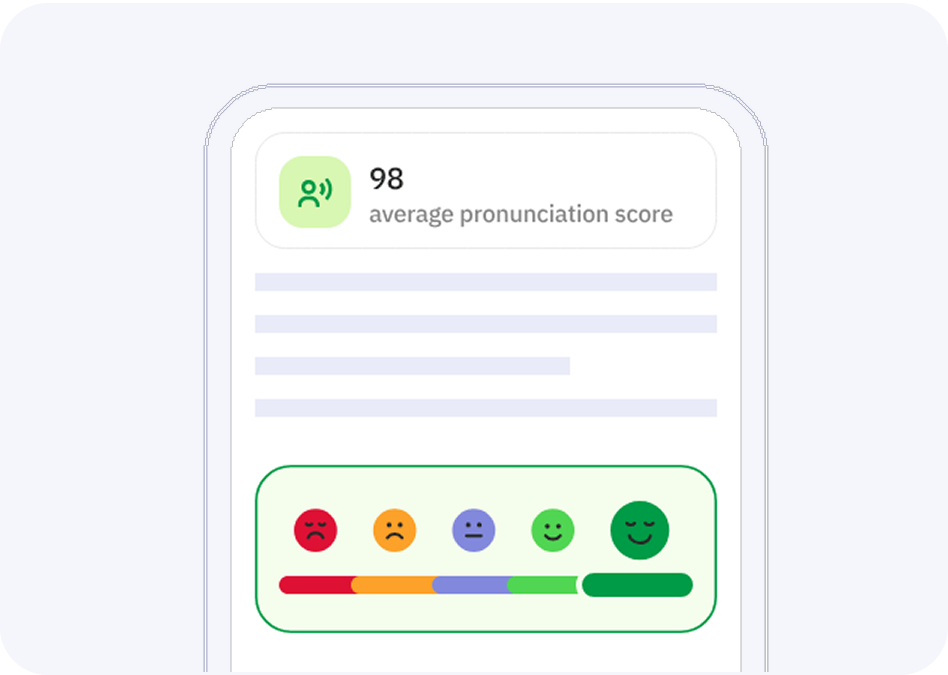Biggest Mistakes to Avoid When Learning a New Language
Embarking on the journey of learning a new language is an exciting and rewarding experience. However, it’s not without its challenges. To achieve fluency and become an effective communicator, it’s essential to avoid common pitfalls that can hinder your progress. In this comprehensive guide, we’ll discuss the top mistakes to avoid when learning a new language and how TalkPal, a cutting-edge language learning tool, can help you overcome them.

The talkpal difference

Personalized Education
Every student has a distinct approach to acquiring knowledge. Through Talkpal technology, we analyze the study patterns of millions simultaneously to build highly effective educational environments that adapt specifically to individual needs. This ensures your journey is fully customized based on your interests and goals rather than a generic curriculum.

Cutting-Edge Technology
Our central mission is to lead the way in providing universal access to a tailored learning journey. By utilizing the most recent breakthroughs in artificial intelligence and modern software, we ensure that everyone can benefit from a sophisticated and personalized educational experience.

Making Learning Fun
We have transformed the study process into a delightful activity. Staying motivated while learning online can often be a struggle, so we designed Talkpal to be incredibly captivating. The platform is so engaging that users frequently prefer mastering new language skills over playing video games.
LANGUAGE LEARNING EXCELLENCE
The most efficient way to learn a language
Try Talkpal for freeTop 5 Mistakes and Proposed Solutions
1. Neglecting Consistent Practice
The Importance of Regular Practice
One of the most critical aspects of learning a new language is consistent practice. Without it, your progress will be slow, and you may struggle to retain information. To achieve fluency, it’s essential to dedicate time each day to practicing your language skills.
How TalkPal Helps with Consistent Practice
TalkPal offers a convenient and engaging platform for consistent language practice. With a vast library of resources and interactive features, TalkPal makes it easy to incorporate daily language practice into your routine.
2. Focusing Solely on Grammar
Balancing Grammar and Communication
While grammar is an essential component of any language, focusing solely on grammar can be counterproductive. Overemphasizing grammar may lead to a lack of confidence in speaking and an inability to communicate effectively. It’s crucial to strike a balance between learning grammar and developing your communication skills.
TalkPal’s Approach to Balanced Learning
TalkPal understands the importance of balanced learning and offers resources that cover both grammar and communication. Through a combination of lessons, exercises, and real-life conversations, TalkPal ensures that you develop a well-rounded understanding of your target language.
3. Not Engaging with Native Speakers
The Value of Authentic Communication
Engaging with native speakers is crucial for developing your listening and speaking skills. Interacting with native speakers exposes you to accents, idiomatic expressions, and cultural nuances that you won’t find in textbooks or language apps.
TalkPal’s Community of Native Speakers
TalkPal connects you with a global community of native speakers, allowing you to practice your language skills in real-life conversations. Through these interactions, you’ll gain invaluable insights into the language and its cultural context.
4. Relying on Translation Apps and Tools
The Limitations of Translation Tools
While translation apps and tools can be helpful in certain situations, relying on them too heavily can hinder your language learning progress. These tools can foster dependency and prevent you from developing the necessary skills to communicate effectively on your own.
TalkPal’s Focus on Independent Learning
TalkPal encourages independent learning by providing resources and tools that help you build your language skills without relying on translation apps. By practicing with TalkPal, you’ll develop the confidence and ability to communicate effectively in your target language.
5. Setting Unrealistic Goals
The Importance of Achievable Goals
Setting unrealistic goals can lead to frustration and a lack of motivation. Instead, it’s important to set achievable goals that align with your learning style and pace. This approach will help you maintain motivation and stay on track throughout your language learning journey.
TalkPal’s Personalized Goal Setting
TalkPal helps you set personalized goals based on your learning preferences and progress. With regular assessments and progress tracking, TalkPal ensures that you stay motivated and focused on achieving your language learning objectives.
Additional 10 Mistakes to Consider
Learning a new language can be both exciting and challenging. Along the way, many language learners encounter common mistakes that can hinder their progress. In this article, we will discuss the top mistakes to avoid when learning a new language and how TalkPal can help you overcome these obstacles to achieve language fluency.
Mistake #1: Not Setting Clear Goals
One of the biggest mistakes language learners make is not setting clear goals for themselves. Without specific objectives, it can be difficult to stay motivated and focused. To avoid this mistake, set SMART (Specific, Measurable, Achievable, Relevant, Time-bound) goals for your language learning journey.
Mistake #2: Focusing Too Much on Grammar
While grammar is essential for understanding a language, focusing too much on it can be counterproductive.
The Importance of Balancing Grammar and Vocabulary
It’s crucial to strike a balance between learning grammar and building your vocabulary. Make sure to dedicate time to both aspects of the language to achieve well-rounded language skills.
Mistake #3: Relying Solely on Textbooks and Courses
Textbooks and courses can provide a solid foundation for language learning, but they shouldn’t be your only resource.
The Value of Immersion and Real-Life Practice
To truly become fluent in a language, you must immerse yourself in real-life language experiences. Engage in conversations, watch movies, read books, and listen to music in your target language to deepen your understanding.
Mistake #4: Not Practicing Speaking from the Beginning
Many language learners focus on reading and writing but neglect speaking practice.
Overcoming the Fear of Speaking
Don’t be afraid to start speaking early on in your language learning journey. Practicing speaking will help you gain confidence and improve your pronunciation, even if you make mistakes.
Mistake #5: Ignoring the Cultural Context of the Language
Language and culture are deeply interconnected. Ignoring the cultural context of a language can limit your understanding.
The Role of Culture in Language Learning
To truly master a language, immerse yourself in its culture. Learn about traditions, customs, and idiomatic expressions to enrich your language learning experience.
Mistake #6: Not Reviewing and Reinforcing Material
Consistently reviewing and reinforcing what you’ve learned is essential for long-term retention.
The Importance of Spaced Repetition
Implement a spaced repetition system to review material at increasing intervals, helping you commit new information to long-term memory.
Mistake #7: Having Unrealistic Expectations
Setting unrealistic expectations can lead to disappointment and demotivation.
Setting Achievable Milestones
Set achievable milestones for your language learning journey. Celebrate your progress and adjust your goals as needed to maintain motivation.
Mistake #8: Not Embracing Mistakes
Mistakes are an inevitable part of the language learning process, and they can be valuable learning opportunities.
The Learning Potential of Errors
Embrace your mistakes and learn from them. Analyze your errors to identify areas for improvement and enhance your language skills.
Mistake #9: Sticking to Only One Learning Method
Relying on just one learning method can limit your progress.
The Benefits of a Diverse Learning Approach
Experiment with different learning methods and resources to find what works best for you. Diversify your approach to maximize your language learning potential.
Mistake #10: Not Tracking Progress
Tracking your progress can provide motivation and help you identify areas for improvement.
The Motivation Boost from Measuring Success
Regularly assess your language skills and document your progress. This will help you stay motivated and focused on your goals.
How TalkPal Can Help You Avoid These Mistakes
TalkPal is a language learning app designed to help you overcome common language learning mistakes.
Personalized Learning Path
TalkPal creates a personalized learning path tailored to your goals, interests, and learning style.
Real-Life Conversation Practice
With TalkPal, you can practice speaking with native speakers, helping you build confidence and improve your pronunciation.
Cultural Context and Immersion
TalkPal offers cultural insights and immersive experiences to help you understand the cultural context of your target language.
Progress Tracking and Goal Setting
TalkPal helps you track your progress and set achievable milestones to keep you motivated and focused on your goals.
Our Conclusion
By avoiding these common language learning mistakes and utilizing the features offered by TalkPal, you can maximize your language learning potential and achieve fluency in your target language. Remember to set clear goals, embrace mistakes, and diversify your learning methods to make the most of your language learning journey.
The most efficient way to learn a language
Try Talkpal for freeFrequently Asked Questions
How can I set SMART goals for language learning?
How can I balance grammar and vocabulary learning?
What are some ways to immerse myself in the target language?
What is spaced repetition, and how can it help me retain information?
How can TalkPal help me overcome common language learning mistakes?







